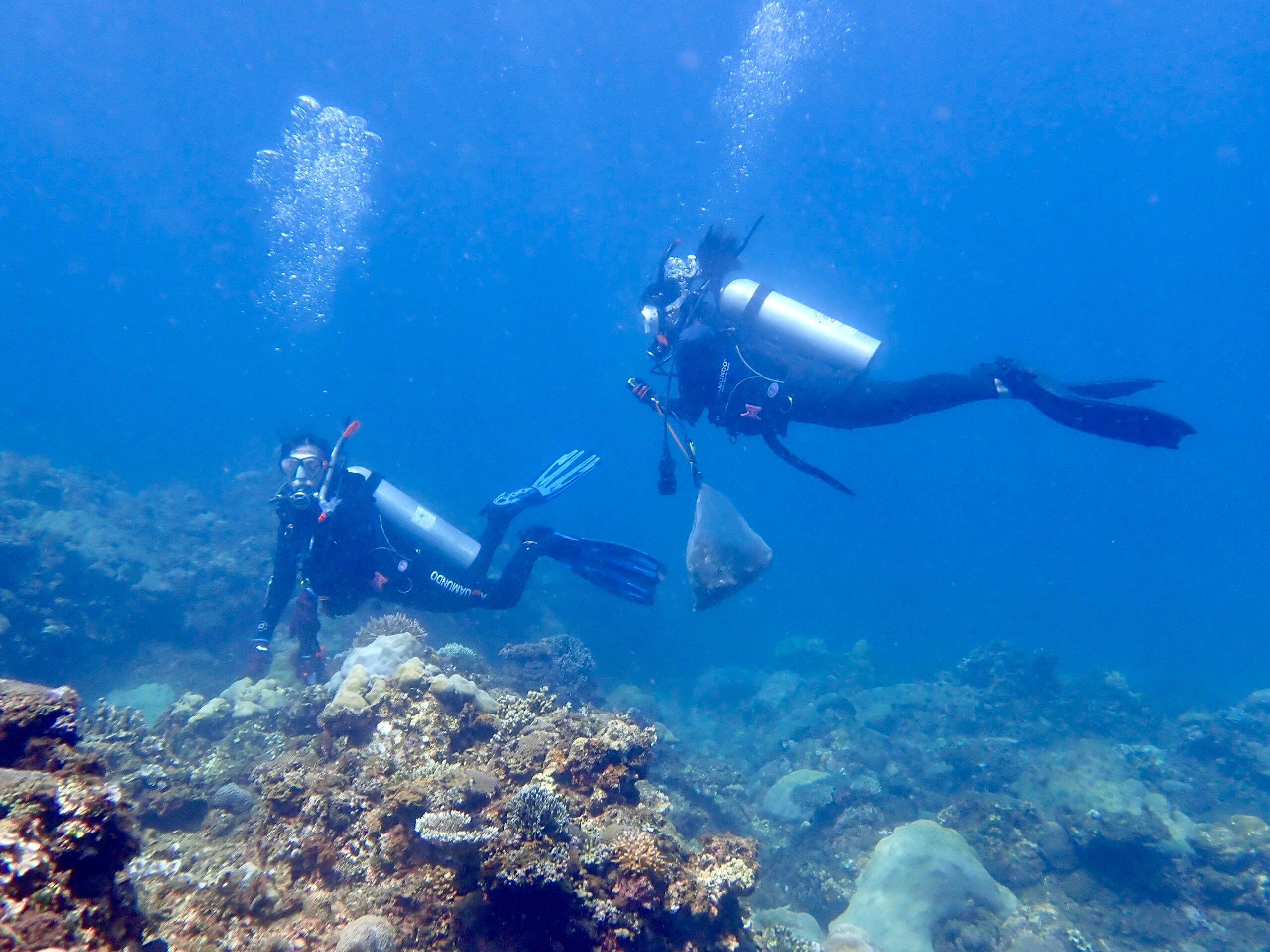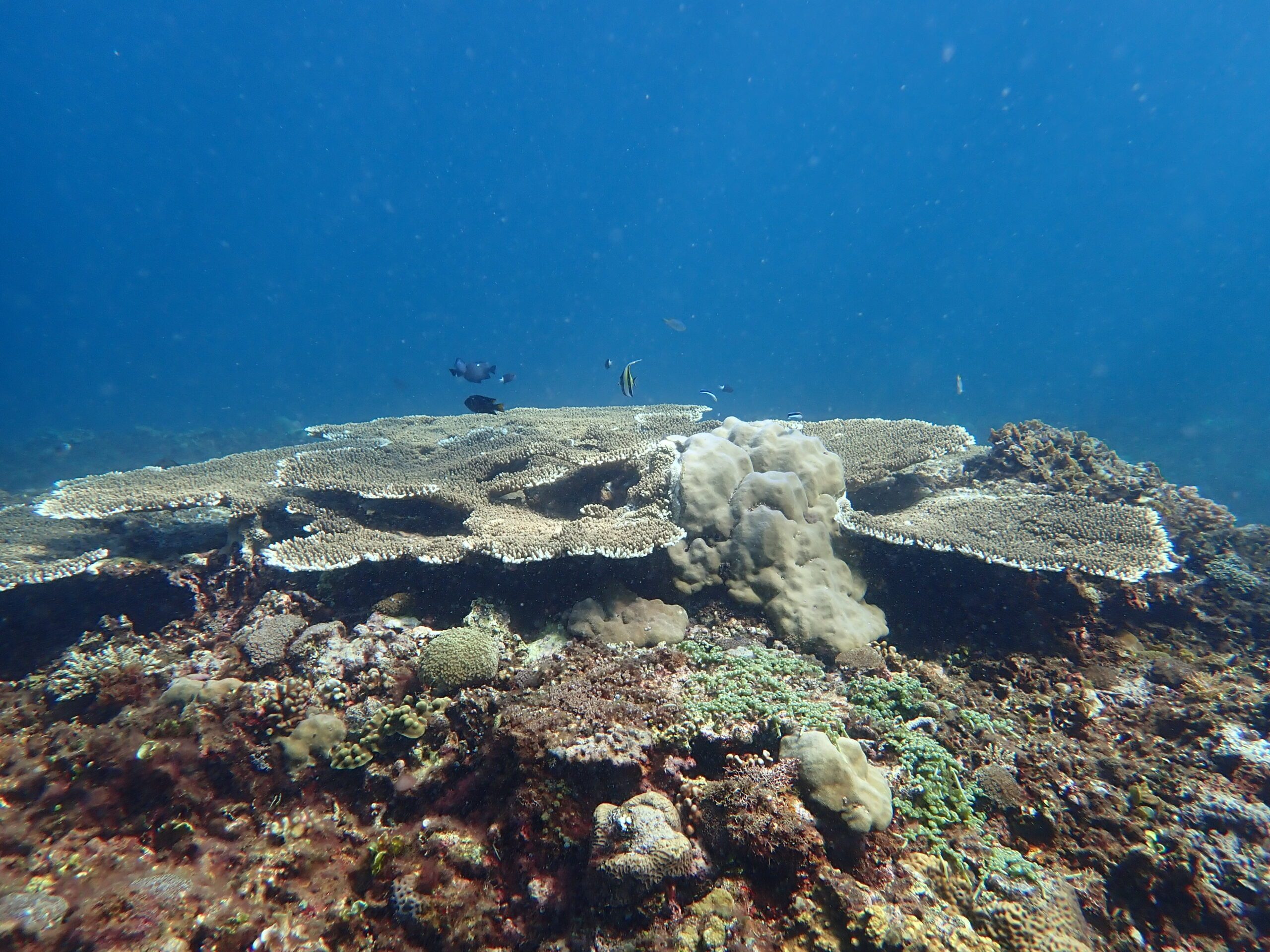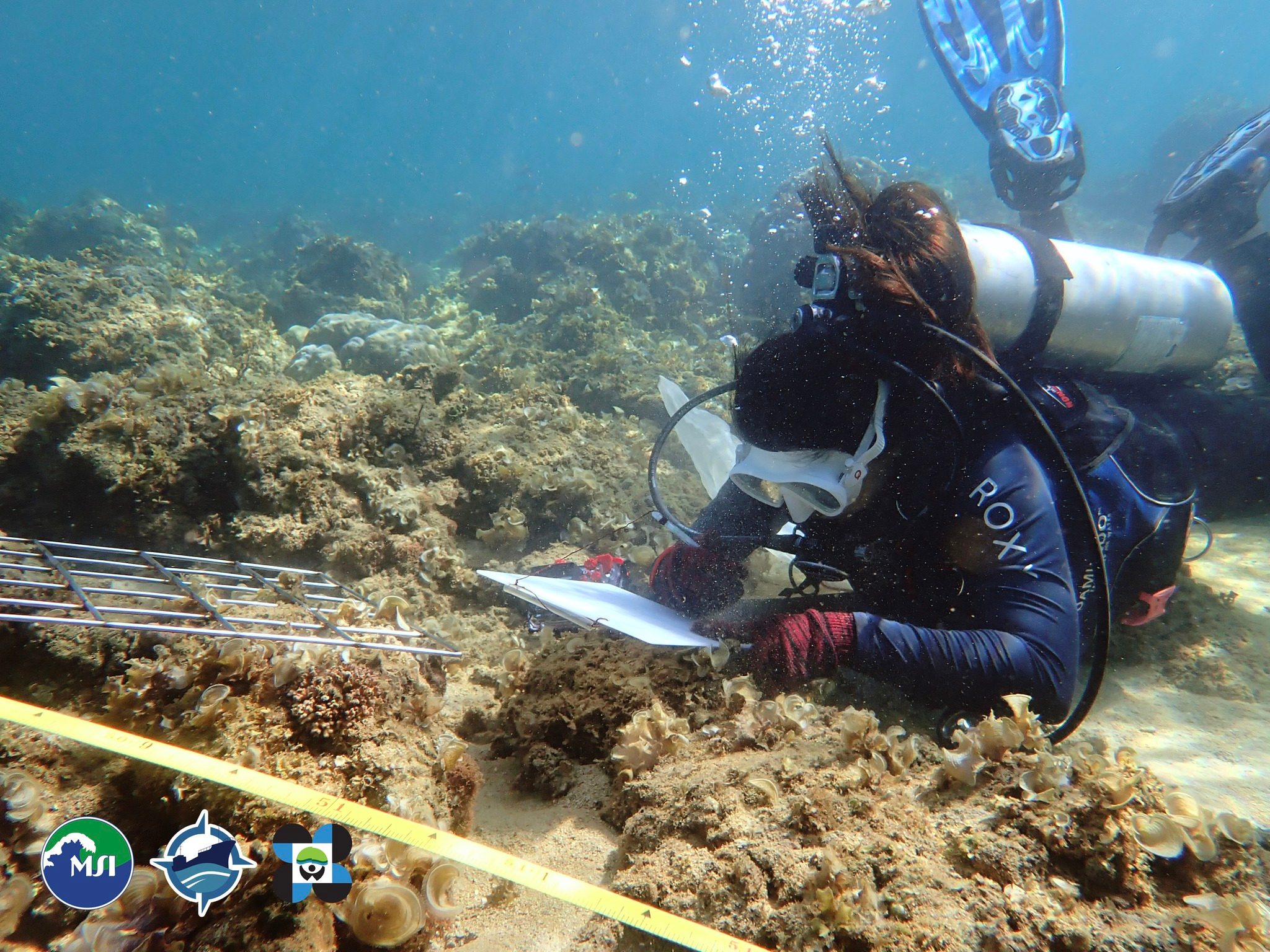SUMMARY
This is AI generated summarization, which may have errors. For context, always refer to the full article.

MANILA, Philippines – As tensions continue to rise between Beijing and Manila, Filipino scientists, lawyers, and researchers are undertaking studies on the resources in the West Philippine Sea and the laws and policies that could be used to hold perpetrators liable for the environmental damage in the area.
The questions they want answered: What’s the extent of the environmental damage in the West Philippine Sea, and how much does the damage cost?
Answers could aid the government’s demand for China, or other parties local and international, to be accountable for the damage.
“We want to hopefully provide a framework or method to assess the damage, considering the value of the resources there,” marine scientist Wilfred Santiañez told Rappler in an interview.

Surveying areas in the West Philippine Sea
In April 2022, the Department of Science and Technology’s (DOST) implemented the program, Resource Inventory, Valuation, and Policy in Ecosystem Services under Threat (REINVEST): The Case of the West Philippine Sea.
REINVEST gathers experts from the University of the Philippines (UP) Marine Science Institute (MSI), Interdisciplinary Studies Center on Integrated Natural Resources and Environment Management (INREM) of UP Los Baños, and the Institute for Maritime Affairs and Laws of the Sea (IMLOS) of UP Law.
All three institutions are working in parallel with each other. UP MSI would survey the areas, INREM would valuate the resources identified from these marine scientific research (MSR) expeditions, while IMLOS would craft the legal framework.
The three-year project will end in 2025. Scientists have been working with what little literature on the West Philippine Sea that is available.
“The problem is the expanse and depth of the West Philippine Sea. We don’t actually know the resources in there,” Santiañez said.
Marine biologist Jonathan Anticamara echoed the sentiment in a forum organized by the UP MSI. Anticamara recently led a team in Pag-asa Island to check the status of cays where corals have been damaged.

For the first two years, UP MSI held MSRs in Palawan in areas such as the Kalayaan Island Group, Brooke’s Point, and Narra. Santianez led the second leg in Zambales in May this year, surveying areas in Palauig and Sta. Cruz.
Simultaneously, UP MSI director Laura David led the expedition in Pangasinan, while Michael Roleda led the field work in Bataan. Physical oceanographer Charina Repollo led a team in Occidental Mindoro.
Santiañez said the teams deployed in these expeditions are composed of 15 to 17 people and another 10 for ship crew.
In the Zambales survey, Santiañez said reefs in Sta. Cruz are now dominated by algae and seaweed. When reefs are overwhelmed by seaweed, corals have a hard time recovering.
Palauig is faring better than Sta. Cruz. But some of the deeper portions in the area also showed algae-dominated reefs. Santiañez said some of the causes they see that could have led to this degradation are unsustainable practices such as dynamite fishing, overfishing, and muro ami.
Another complication is the methodology used for economic valuation, said Santiañez, because these tools are mostly biased for terrestrial resources, or those found on land.
The second component of REINVEST is the development of “physical and monetary accounts using exchange and welfare values for coastal resources and ecosystem services,” which economists Canesio Predo and Asa Jose Sajise from UP Los Baños are leading.
The Philippine government has been working on the idea on accounting and putting value on its natural resources. President Ferdinand Marcos Jr. recently signed the Philippine Ecosystem and Natural Capital Accounting System (PENCAS) Act.
Lawmakers and government officials are optimistic that the law would lead to better sustainable management policies.
Will their work translate to legislation too?
“It should,” Santiañez said. “Especially in light of what’s going on in the West Philippine Sea. That’s why actually I think it was strategically conceptualized to prioritize West Philippine Sea in the valuation because there’s an immediate need.”
Exacting compensation
The endeavor opens a lot of uncharted territories not just for scientists, but for the lawyers engaged in the project as well.
IMLOS director Jay Batongbacal said they have so far reviewed domestic and international legal frameworks concerned in resource valuation and compensation. Now they are looking at how these could be applied in the Philippines.
“[A]s we found out as well in our research, there are gaps in our current law and policy,” Batongbacal told Rappler in an interview.
“The biggest one being, how does the State value its resources? And then the next gap is…how do you secure compensation in case those resources have been damaged deliberately or accidentally?” he asked.
While they have been working with scientists in other projects before, Batongbacal said there is still a challenge in adapting what science recommends to “what the law says and what the law will accept.”
“It’s useful for us to interface with them so we’ll find out how to translate science into policy,” Batongbacal shared.
“In fact, there was a research voyage where I had one of our lawyers join them, to see first hand what it is that they do, how do they do it, in terms of resource survey valuation,” he added.

Seeing how the work is done would help them understand the kind of evidence that could be produced, or would be needed, to prove claims for compensation, the lawyer explained.
Under the United Nations Convention on the Law of the Sea (UNCLOS), states are held responsible for the protection of their marine environment.
Consequently, they should also “ensure that recourse is available in accordance with their legal systems for prompt and adequate compensation or other relief in respect of damage.”
Aside from environment stewardship, UNCLOS says states are to cooperate to develop procedures for payment of adequate compensation for damage.
Claims for compensation could extend beyond the disputes with China, too. As the team is set to make a general framework, this could be used in local settings where there are incidents of marine environment damage.
The Philippine Coast Guard (PCG) had been consistent in the call to hold China accountable for environmental damage in the West Philippine Sea.
China had done extensive reclamation and island-building activities in the South China Sea, as it continues to assert its vast claim over the area.
– Rappler.com
Quotes translated to English for brevity.
Add a comment
How does this make you feel?







![[OPINION] Grading Marcos admin’s performance on the climate agenda](https://www.rappler.com/tachyon/2024/06/grading-marcos-performance-climate-agenda-june-25-2025.jpg?resize=257%2C257&crop=441px%2C0px%2C1080px%2C1080px)
![[In This Economy] Why we need to stop the proposed Laguna de Bay expressway](https://www.rappler.com/tachyon/2024/06/Why-we-need-to-stop-Laguna-de-bay-expressway-June-28-2024.jpg?resize=257%2C257&crop=458px%2C0px%2C720px%2C720px)
![[OPINION] No room for ‘business as usual’ in era of climate emergency](https://www.rappler.com/tachyon/2024/06/no-room-business-as-usual-climate-change-june-25-2024.jpg?resize=257%2C257&crop_strategy=attention)

![[OPINION] Remembering RSP, Norman and Jessie – geoscientists for the people](https://www.rappler.com/tachyon/2024/04/raymundo-punongbayan-April-29-2024.jpg?resize=257%2C257&crop_strategy=attention)



![[Rappler Investigates] When China, Leila, Sara conspire](https://www.rappler.com/tachyon/2024/06/saraduterte-west-ph-sea-leila-de-lima-newsletter-june-27-2024.jpg?resize=257%2C257&crop=279px%2C0px%2C720px%2C720px)
![[Just Saying] Invoke the Mutual Defense Treaty](https://www.rappler.com/tachyon/2024/06/TL-invoke-mutual-defense-treaty-June-25-2024.jpg?resize=257%2C257&crop_strategy=attention)

![[Newspoint] Willful indifference](https://www.rappler.com/tachyon/2024/05/np-willful-indifference-05032024.jpg?resize=257%2C257&crop=270px%2C0px%2C720px%2C720px)
There are no comments yet. Add your comment to start the conversation.